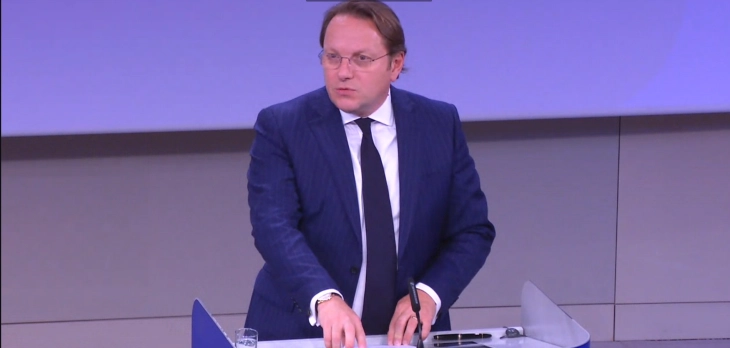Varhelyi: Working on broader package for energy rescue of Balkans

Brussels, 12 October 2022 (MIA) – European Commissioner for Neighborhood and Enlargement Oliver Varhelyi said Wednesday the EC is working on the demands of North Macedonia and other countries for assistance to cover energy needs, MIA reports from Brussels.
“We are working on a broader energy rescue package for the entire Balkans and we will try to deliver this very fast, hopefully we should be able to present it to the leaders of the Western Balkans on November 3, at the Berlin Process summit. We are looking into ways how we could help them in meeting the immediate short-term and mid-term needs when it comes to creating alternative supplies of electricity or gas, how to help interconnections with gas or electricity, and how to help them to boost investments and availability of green energy in the region,” said Commissioner Varhelyi.
On top of this, he added, we are also looking in the energy efficiency area and how we could speed up retrofitting of public buildings, so that “we can help where the most need is.
“As you know, in this regions, the huge Soviet-style public buildings are the biggest energy-wasting facilities,” noted Varhelyi.
The Commissioner was also quizzed on the limited progress in the field of freedom of expression, where the EC notes the absence of reforms in the Macedonian Radio Television, whereas lack of media self-regulation has negative impact on professional standards in journalism.
“On freedom of expression, what we are looking for is legislative reform that has been an issue for a number of years now. I hope the opposition and the Government coalition can finally find a way to agree in the Parliament on these reforms,” said Varhelyi.
He did not want to comment on the Bulgarian clubs named after fascist collaborators that have been opening across North Macedonia, while expressing hope that the negotiating framework and the process would help overcome tensions.
“I hope that by agreeing on the negotiating framework and having the first political intergovernmental conference and the political agreement that enabled us to get there will create a different political and public climate,” added Varhelyi.
He encouraged both sides to be open, forthcoming and engaging within the framework that has been created.
“I see some positive signs emerging and we should put our trust in our friends in Sofia and Skopje that they will finally start to change the whole atmosphere,” underlined Varhelyi.







